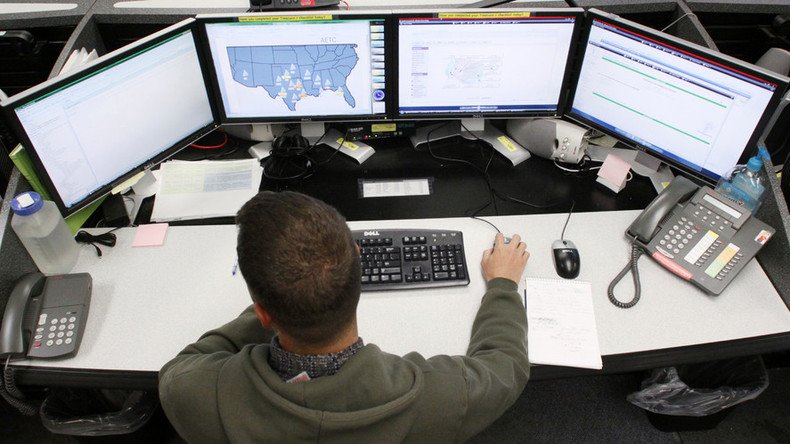Pentagon frustrated at slow pace of digital war against Islamic State

Cybercom was created to develop digital weapons to damage and destroy the Islamic State’s network, computers and cellphones, but it’s off to a slow start. The Pentagon program lacks a full cache of malware, other tools and the right staff.
The unit, Joint Task Force Ares, debuted in May and coordinates efforts with US Central Command, headed by Lt. General Edward Cardon in Fort Meade, Maryland.
“Cybercom has not been as effective as the Department would expect them to be" >> https://t.co/QO17ZYaWhT
— †ϲΘѓѓΘՏїΘл† (@c0rr0s10n) July 15, 2016
The unit was tasked with taking on Islamic State (IS, formerly ISIS/ISIL), an adversary outside the usual nation-state profile. The terrorist group’s sophisticated use of technology for recruiting, operations and propaganda has caught the attention of Congress and top military brass.
“Cybercom has not been as effective as the Department would expect them to be, and they’re not as effective as they need to be,” a senior defense official who, like other officials, spoke on the condition of anonymity to discuss internal conversations, told the Washington Post. “They need to deliver results.”
Defense officials said the command is struggling to find the right staff and has yet to produce “a full suite of malware and other tools” to fight the enemy. So far, the unit has 100 personnel, including intelligence officials and staff from across the military.
DOD: Cybercom Chief Discusses Cyber Threats at the National Press Club https://t.co/6MDHCyrCII
— US Fed Government TV (@FedGovTV) July 15, 2016
While the unit has been publicly discussed, the details about what form their digital weapons will take remained secret.
The team might be creating ways to disrupt a payment system, take down a communications platform or bring down IS’ online magazine, Dabiq.
Lt. General Cardon said the fledgling unit is having some effect but that the militants were also resisting its efforts, switching servers and other hardware to stay ahead of the attacks.
“We’re definitely having an impact on them, but it’s a dynamic space,” the general said in an interview.
At NPC for luncheon with Adm. Mike Rogers, NSA director and CyberCom chief. pic.twitter.com/5sKV06SRB6
— JenJudson (@JenJudson) July 14, 2016
The Pentagon hopes the cyber weapons will soon become as normal as airstrikes and artillery barrages. But there are critics to the pursuit of such digital arms.
“The more dependent you are on technology, the more you are a target for cyberattack. And ISIS is less dependent,” James Lewis, a cyber-policy expert at the Center for Strategic and International Studies, told the Washington Post. “It doesn’t mean you get no military advantage out of it. But scruffy insurgents aren’t the best target for high-tech weapons.”
Cardon cautioned that the cyber element is just one of many in the struggle against the Islamic State.
“We’ll be a contributor,” he said. “This war here is not going to be won in cyberspace.”
The Pentagon earlier this year engaged in a number of airstrikes as part of its Operation Inherent Resolve, designed to destroy infrastructure of the Islamic State. In February, the anti-IS coalition bombed an IS-controlled oil and gas plant. Earlier in the month, the coalition conducted 20 strikes on targets, ranging from oil and gas plants to IS mortar positions and weapon caches.
Pentagon releases 2 videos showing US-led airstrikes destroying ISIS oil & gas plant https://t.co/DsK25zOMO4pic.twitter.com/rvsU6tXgVt
— RT (@RT_com) February 11, 2016
IS allegedly receives two-thirds of its revenue from the sale of its illicit oil production. The New York Times estimated that the terror group could earn $40 million a month through the production and sale of oil on the black market.
‘A good strike’: Pentagon video shows US bombing ISIS cash depot https://t.co/60lMDfQkI8pic.twitter.com/gfYI4sPLV5
— RT America (@RT_America) January 18, 2016
The Obama administration said that the overall military campaign against Islamic State has weakened the self-anointed caliphate. A senior administration official told Congress last month that the group had lost almost half the territory it once controlled in Iraq.
In Syria, US-backed fighters are battling for control of areas along the Turkish and Iraqi borders.












